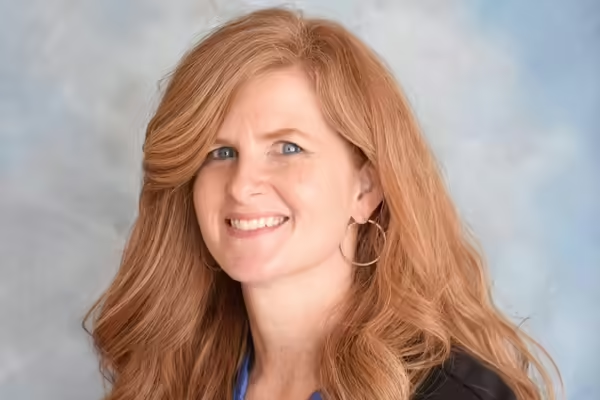
LEWISTOWN, Ill. - The agriculture industry continues to change rapidly, impacting everyone from the producers to the industry professionals to the food consumers. University of Illinois Extension is growing its team of commercial agriculture educators to provide research-based, unbiased information to landowners, producers, and professionals.
Illinois Extension unit serving Fulton, Mason, Peoria, and Tazewell counties added a new ag educator to the team. Tara Heath was hired to focus on agronomy and crop education.
“It never ceases to amaze me the amount of change that has occurred in a relatively short amount of time in agriculture – from the growing size of machinery to the addition of precision technology, crop breeding programs that are driving higher planting populations, and so much more,” Heath stated. “This is why it’s so important to bring this new position to our unit. Farms are changing and we need to be prepared to adjust to those changes because we all have a stake in ag.”
Heath received her Bachelor of Science degree in agriculture with an emphasis in horticulture from Western Illinois University and Master of Science degree in crop sciences with an emphasis in horticultural food systems from University of Illinois. She works alongside her father, brother, sister-in-law, nephew, and husband on their 3,000-acre farm operation in McDonough County where she grew up.
“I consider myself lucky to have grown up watching my mom and grandmother contribute in a major way to the family farm,” Heath shared. “This continued for me as my dad expected me to be able to drive a tractor, operate a manual transmission, and back a trailer like all the guys - what a blessing (disguised as work)!”
While working for Extension as a horticulture program coordinator, Heath became an Annie’s Project trained facilitator. “I greatly enjoy helping women further their knowledge of agriculture. Not all women are able to be so involved in the farm operation, and Annie’s Project works to bridge that knowledge gap mostly on the farm business side of things,” Heath continued.
Heath switched roles in August and immediately began meeting the local needs. “I’m excited to extend university research and advancements to local farmers who can best decide which new technologies make the most sense for their unique farms.
“My master’s degree in crop sciences emphasized the need for agriculture to be able to meet increasing world population food demand while also remaining environmentally and fiscally sustainable for producers. Real-world issues like herbicide resistance, erosion, nutrient loss, etc. are problems that I’m eager to work on with solutions like reduced tillage and cover crops.”
While this new position will focus on traditional crop systems (corn/soybeans) Heath’s background in horticulture allows her to provide assistance in specialty crops such as pumpkins, grapes, and agroforestry.
Photo caption - Tara Heath was recently promoted to the new commercial ag educator—crops and agronomy serving Fulton, Mason, Peoria, and Tazewell counties. She brings both her formal education and life-long farming experience to the job.
University of Illinois Extension develops educational programs, extends knowledge, and builds partnerships to support people, communities, and their environments as part of the state's land-grant institution. Extension serves as the leading public outreach effort for University of Illinois Urbana-Champaign and the College of Agricultural, Consumer and Environmental Sciences in all 102 Illinois counties through a network of 27 multi-county units and over 700 staff statewide. Extension’s mission is responsive to eight strategic priorities — community, economy, environment, food and agriculture, health, partnerships, technology and discovery, and workforce excellence — that are served through six program areas — 4-H youth development, agriculture and agribusiness, community and economic development, family and consumer science, integrated health disparities, and natural resources, environment, and energy.